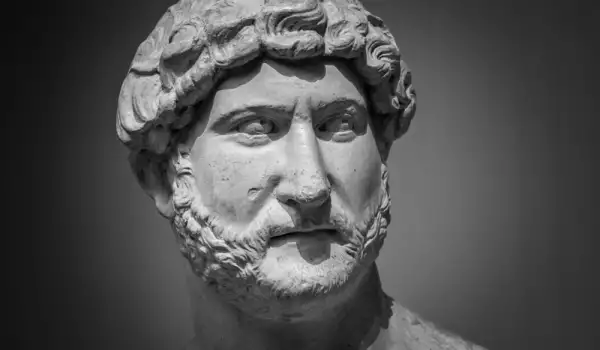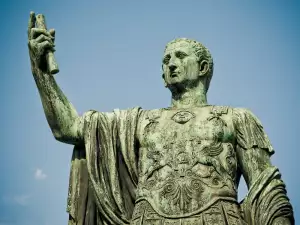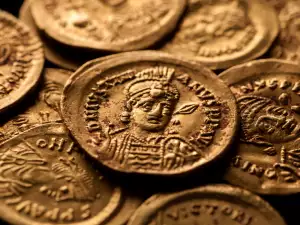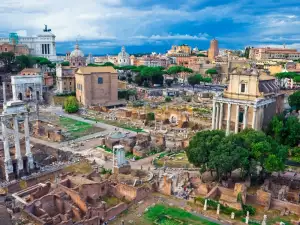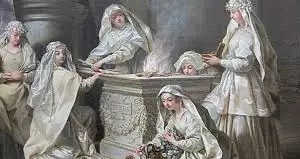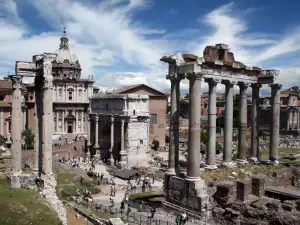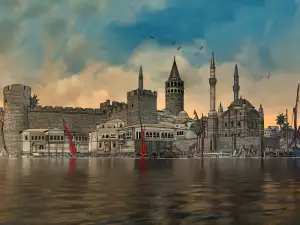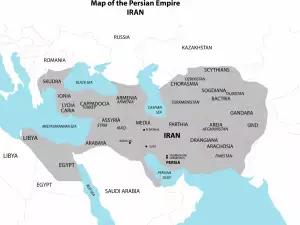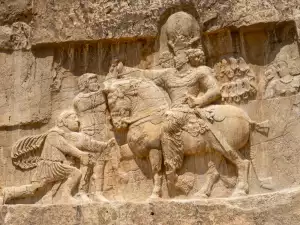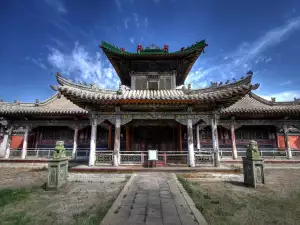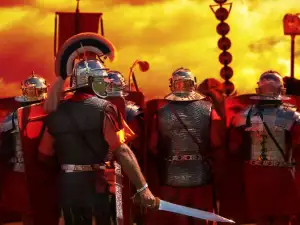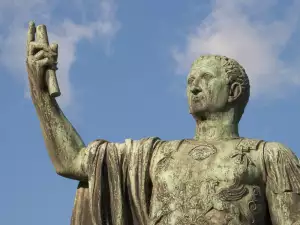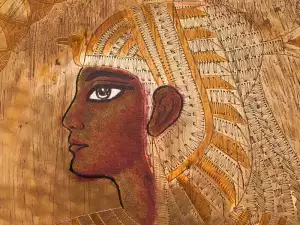Publius Aelius Hadrian was the third of a group of five Roman emperors whom history defines as good rulers. Not only from the point of view of his contemporaries, but also from that of his descendants.
The importance of Emperor Hadrian's rule for the Roman Empire was determined by his refusal to pursue a conquering foreign policy, by which he gave peace to his subjects and by his humane management of the internal affairs of the empire. Rome needs an emperor like him and fate works to get him.
Emperor Hadrian's path to the throne of the Roman emperors began when he was 10 years old. Then Hadrian, born in AD 76, was left an orphan. As his father was related to Emperor Trajan, the latter took care of the boy's upbringing and education. Over the years, he began to prepare him for statesmanship, since he himself has no children.
After the death of the emperor, Hadrian was proclaimed the new master of Rome with the support of the army and of Trajan's widow, who supported his career for many years.
At the very beginning of his reign, the new emperor renounced the aggressive foreign policy led before him by Trajan and in the face of the Parthian state and Armenia received friends as they became independent. Throughout his reign, no major military campaigns were organized and the water wars ended quickly, almost quietly. That is why he is valued by many soldiers. To them the imperial generosity is great.
Hadrian's external enemies are unknown, for by his order the people of Mesopotamia were freed from the heavy taxes imposed by Trajan. The Armenians finally got the right to have their own king, while before they were under the rule of a Roman legate. And the kings of Georgians and Iberians receive rich gifts from the emperor.
A novelty in his military policy is that the emperor began to accept as legionnaires not only Roman citizens, but also the inhabitants of the Roman provinces, with which the army became barbarized.
Affairs of state were the priority of Emperor Hadrian throughout his reign. His concern for the financial condition of the empire led him to follow in detail the entire financial policy.
The emperor aims to be on good terms with absolutely all social groups. This is a difficult task for such a stratified society, but he solves it successfully. Respects the Senate; sees to it that the plebeians get enough bread and entertainment; he raised the authority of the equestrian class by entrusting them with many administrative positions and thus started the stratum of high officials.
His nobility does not pass even the slaves. Masters are forbidden to kill slaves, sentences are now issued by a court, not by the masters. Prohibits the sale of slaves and slaves to pimps and gladiatorial schools. Closes labor prisons for slaves and citizens.
His generosity to the people is truly impressive. He forgave huge sums of private debtors to the imperial treasury and ordered all receipts for their debts to be burned. It also cancels the unpaid debts of the provinces. The property of the convicts goes to the state and not to his personal treasury. These proceeds enable food funds to be paid to all boys and girls; to recover the losses of senators ruined through no fault of their own; to distribute generous sums to a wide range of citizens.
Emperor Hadrian is known as an excellent warrior with great physical endurance, who even mastered gladiatorial weapons. Along with that, he is an excellent administrator. And as a true all-rounder, he is also a sophisticated intellectual. The education he received as a child made him a devotee of Greek culture. Before he became emperor he ruled Athens and later took great care of this cultural capital of the old world. His reign was a golden age for Athens. By order of the emperor, a magnificent temple of Zeus was erected in the city.
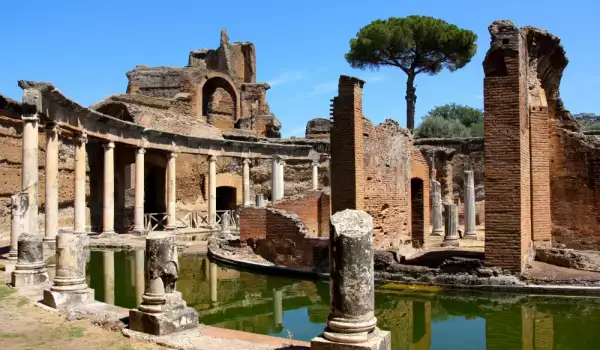
His association with the Greek taste for life is manifested in his patronage of his astonishingly handsome Greek slave Antinous. However, he has an unfortunate fate. He drowned in the Nile while still very young. The emperor's grief prompted him to declare him a deity and erect a city named after him.
Among all the emperors, Emperor Hadrian is also distinguished by his passion for travel. He manages to visit an incredible number of places and worship their landmarks.
Emperor Hadrian is not left behind in construction activity either. In the vicinity of Rome, he built a magnificent villa, in which he recreated the culture of many visited countries.
Hadrian's building activity is marked by the sign of his great modesty. Nowhere does he write his name. In rebuilding the Pantheon built before him, he left the name of the builder Marcus Agrippa. This building has a most fortunate fate, it does not become a ruin, nor is it rebuilt.
The emperor himself also appears as an architect. His is the design for the Temple of Venus. Hadrian did not produce any children of his own and therefore the question of succession to the throne began to occupy the emperor's thoughts more and more over the years. With this, his hesitations about who to name as his successor begin. He first adopted Lucius Aelius, intending to replace him, but Lucius died before Hadrian. The issue of inheritance became particularly acute in his later years.
The slowly dying emperor settled on Antoninus, whom he also adopted and later power passed into his hands. Before him, however, Hadrian's attention was attracted by Marcus Anius Verus. He is too young to be emperor and so at Hadrian's insistence Antoninus adopts him and later history remembers him as Emperor Marcus Aurelius.
Before his death, the emperor fell seriously ill. This unleashes all his natural cruelty. His rage caused many of his intimates to perish. Without formal investigation and without convictions, Senator Servian and his grandson were killed, as they were found to be hoping to reach the throne. The Senate turns against Hadrian, as does public opinion.
The Emperor Hadrian died in the summer of 138 and was buried in Rome in a magnificent mausoleum on the banks of the Tiber River, which he himself built during his lifetime.
Many grew bitter against Hadrian in the last years of his reign, but his successor Antoninus managed to convince the Senate to deify the late emperor. This dignified behavior towards Hadrian's memory earned Antoninus the nickname Pius the Pious.
In 141, the divine Hadrian acquired a temple built in his honor by Antoninus Pius. The mausoleum is a symbol of the eternal and indestructible Rome and the Roman popes make it their fortress. They call it Castle of the Holy Angel - Castel Sant Angelo.
